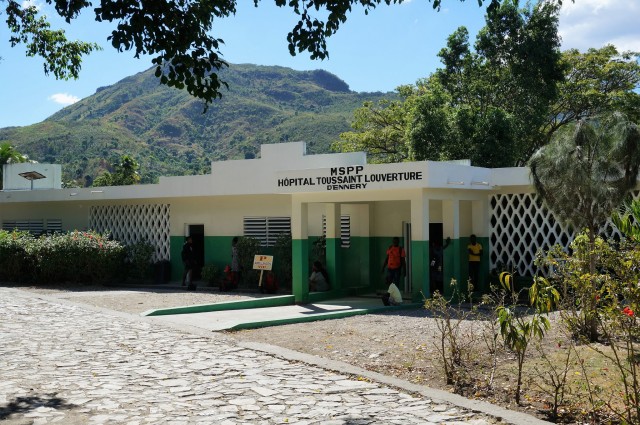One Drop in health care facilities

Photo from our Haiti project
"The widespread lack of WASH services in healthcare facilities not only compromises patient safety, dignity, and human rights, but it also holds back efforts to improve maternal and child health."
Director-General of the World Health Organization (WHO)
Update: June 2021
There is a major crisis when it comes to basic healthcare systems1: One in four healthcare facilities lack basic water services, and one in 10 have no sanitation services—impacting 1.8 billion and 800 million people, respectively. These numbers are shocking, especially as the COVID-19 pandemic has demonstrated the critical need of water, sanitation, and hygiene (WASH) for the well-being of all. Beyond the infrastructure needs, even more urgent is the adoption of key behaviours to protect both patients and health care providers. Handwashing with soap is a highly effective way to prevent infection—but up to 90% of staff members do not follow best practices, even when supplies are available2.
Health care facilities need sufficient WASH provisions to deliver safe, quality health services and prevent and control infections for both patients and healthcare providers. In 2018, One Drop made a commitment as part of the United Nations Secretary-General’s Global Call to Action to prioritize action on WASH in all health care facilities. Previously, the World Health Organization and UNICEF had committed to the vision that every health care facility should have access to safely managed and reliable WASH services.
In 2020, One Drop supported more than 100 health care facilities in Haiti, Malawi, Mali and Burkina Faso. We continue to drive resources and impact in this area by working on international and national partnership networks to scale our impact and share lessons learned. We are active collaborators with sectoral leads such as Global Water 2020 and continue to work closely with the World Health Organization, the Centers for Disease Control and Prevention (CDC) and partner leads to establish the community-based and participatory methods needed to ensure long-term systems change.
Since 2020, One Drop’s innovative Social Art for Behaviour Change™ approach has been used to design interventions aimed at ensuring that improved access to water, sanitation and handwashing stations translates into better and safer quality of care for the people and the communities we support.
1WHO and Unicef, Global Progress Report on Wash in HCF, 2020
2WHO Guidelines on Hand Hygiene in Health Care: a Summary, 2009
